How Much Does a Heating Engineer Cost?
Last updated 18th July, 2025
Looking into how much a heating engineer costs in the UK?
This guide has everything you need. Below, we break down how much a heating engineer charges per hour, typical heating engineer day rates, what common homeowner heating engineer jobs cost, and more!
Let's begin!
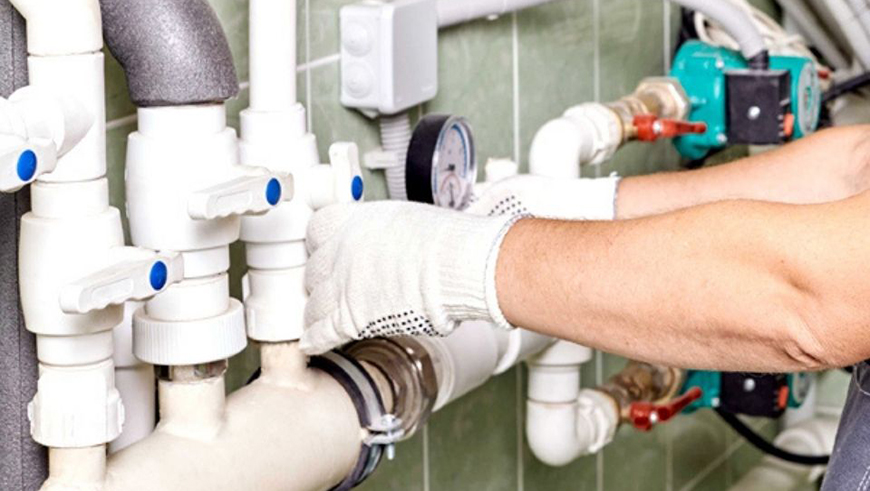
Table of Contents
Heating Engineer Costs
Heating engineer rates are usually either charged per hour, or they may provide a quote for the complete job. In the majority of cases they are most likely to work alone, although larger jobs may require more manpower.
The following price guide looks at heating engineer costs and examples of tasks they can carry out. In this article we focus on residential jobs around the home, as costs may vary within commercial and business settings.
Here are the average rates for a heating engineer:
Heating Engineer Hourly Rate
Heating engineer costs, much like all other trades, differ from region to region. This is largely down to demand and the cost of living, with major cities such as London and Birmingham likely to charge a higher price than smaller towns or cities further North.
The average hourly rate of a heating engineer in the UK is between £28 and £44 per hour, while rising to as much as £58 per hour within high cost areas.
In the event you should require a heating engineer in an emergency, or outside of their regular hours, then rates are likely to increase and you should always check any call out charges prior to confirming the job.
Heating Engineer Daily Rate
The average daily rate for a heating engineer is between £220 and £250 per day, reaching around £300 in major cities and key locations.
This also follows the same trend as hourly rates, with the price differing from region to region. Tradesmen costs, for example, often being cheaper in the North than they are in South East.
However, wherever you live, if you have several tasks that need completing (or a job that's going to take longer than a couple of hours), then hiring a heating engineer on a day rate can work out more cost-effective in the long run.
Summary: Cost of Heating Engineer Jobs
Above we have already looked at the hourly rate and day rate for a heating engineer, below we take a look at just some of the services provided and their associated prices, before going into each job in further detail.
Please note these are national averages, and the end cost may vary depending on factors such as location, size of property, the length of time required to complete and the extent of the work required.
| Service | Estimated Time | Average Cost |
|---|---|---|
| Boiler Service | 1 hour | £95 |
| Boiler Installation | 1 day | £2,500 |
| Radiator Replacement (single) | 1–2 hours | ~£200 + labour |
| Radiator Replacement (whole house) | 1–2 days | £1,300 |
| Power Flushing (3-bed home) | 1 day | £450 |
| Central Heating Installation | Varies | £2,250 |
| Water Underfloor Heating | 4–6 days | £4,250 |
Heating Engineer Jobs
Heating engineers are trained and qualified in various areas of expertise, allowing them to carry out a number of jobs around your home.
Boiler Installation
The installation of a new boiler should be completed within a day and the average cost is usually anywhere between £2,000 and £3,000, with approximately 85% of the cost going towards the boiler itself.
If your current boiler is past its best and you require a new one, then your heating engineer can also remove the old boiler at the same time. This is often covered within the installation cost as standard, but always worth checking first.
Should you wish to purchase your own boiler directly, then you may only have to pay your engineer labour fees for their time to complete the job.
If you're looking for a cheap and basic option, these can be found for around £1,800, although cheaper boilers are more likely to become more prone to issues and could end up costing you more in the long run.
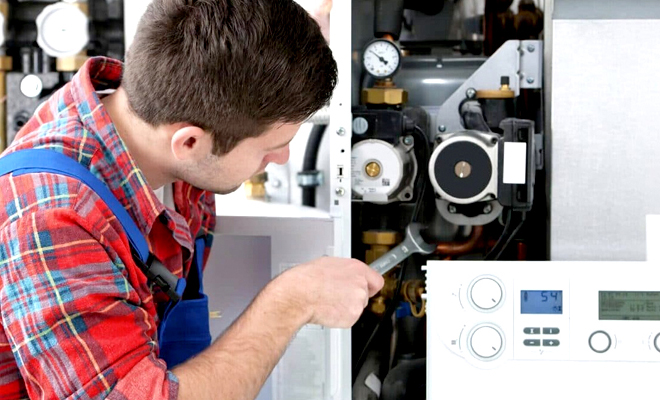
Boiler Service
Rather than requiring a new boiler, you should first check if it's simply overdue a service. Depending on whether or not you already have a maintenance plan in place, the average boiler service cost will be around £70 to £120.
Most annual boiler services also come with a guarantee, protecting you against any unexpected costs over the course of the following 12 months.
Power Flushing
Power flushing is an incredibly important service that removes rust, sludge, dirt and any other debris from the boiler system to prevent any costly repairs further down the line and keep your heating system healthy.
A heating engineer will charge around £450 for a 3-bedroom house with around eight radiators. The price will differ depending on the number of rooms and radiators in your home due to a larger sized heating system. It takes around a day to complete from start to finish.
The engineer will use specific flushing chemicals to help lift anything stuck on the inside of radiators and pipes, and these need to be carefully used to ensure they are effective.
There are a few steps to the power flushing process, including laying dust sheets and preparing each individual radiator in your home for flushing.
Afterwards, you'll find your heating system works far more efficiently, with your system working much more quietly and radiators warming up faster and burning much hotter.
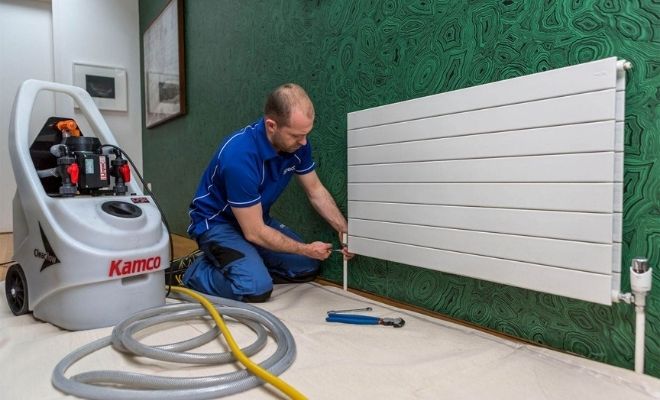
Underfloor Heating
Underfloor heating is a luxury like no other, especially during those cold and dark winter mornings before work.
For electric underfloor heating, the job can take 1-2 days to complete, and it will cost anything from £1,500-£2,000.
As well as electric underfloor heating, you can also install a water-based system, although the pricing differs considerably depending on which option you purchase. As a general rule, electric underfloor heating is easier and cheaper to install, so if you're on a budget, this is definitely the more popular choice.
Water-based underfloor heating is much more expensive as it requires pipes to be lay under the floor and involves pressure tests and other processes to ensure a quality finish. As such, water-based underfloor heating will take around 4-6 days and costs around £4,000-£4,500.
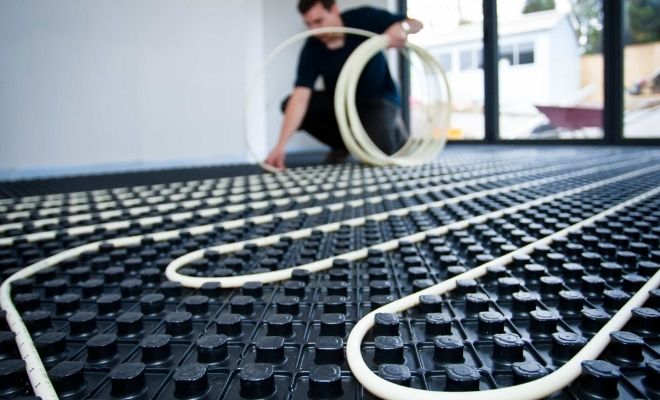
Radiator Replacements
Another common job that heating engineers find themselves working on quite frequently is to replace a radiator. The average cost of a standard radiator is approximately £200 (plus labour fees).
To replace all the radiators in a typical 3-bedroom house, the heating engineer will probably need a day or two to complete the job, costing on average around £1,300.
There are a few aspects to the replacing of radiators like checking and hanging brackets, draining old radiators and filling new ones, and the process can be a little tricky, meaning it can't really be done as a DIY project.
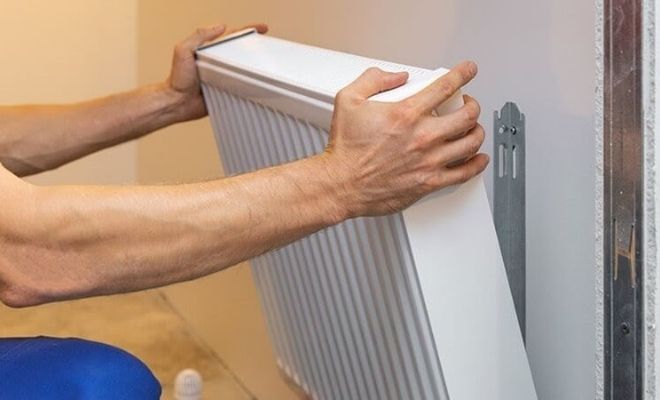
Central Heating Installation
In the event you're upgrading or installing a new central heating system, this can cost around £2,250 for a complete system with combi boiler.
Although the price may vary, depending on factors such as how many radiators you require and the type of boiler you choose. This can be determined by a consultation with your heating engineer or the company you are hiring to carry out the work.
Emergency Heating Engineer Prices
Whether it's a faulty boiler on a cold day, a suspected gas leak, frozen pipes or lack of water pressure, then a heating engineer should always be able to get you going again.
However, in the event of an emergency or a job outside of normal hours, the fees are likely to be higher than normal and come with minimum call-out charge:
- Emergency heating engineer cost: £90 per hour
- Minimum call out charge: 3 hours = £270
- Additional fees: Extra £90 per hour
Again, these prices can vary depending on your location, plus as this is only a rough guide you should always get confirmation on what you're likely to be charged before agreeing to the call out.
Gas Leak
A gas leak is a dangerous situation and shouldn't be ignored. Gas leaks are caused by a few different things like shifted pipes or broken valves, and by design, gas smells incredibly strong, meaning that even a small, non-threatening leak can be detected, giving you plenty of time to have it fixed before it becomes a problem.

This doesn't mean you have days and weeks to ponder over a repair; it just means you're not in immediate threat. A gas leak should be fixed within an hour or two by a heating engineer and usually only requires a new valve or fixing.
No Water Pressure
Water pressure is an annoyance, as it leads to cold water and hardly any water being pushed through showers and taps.
This is a really quick fix, and a heating engineer should have you sorted in less than an hour, although be prepared to pay for more than that as a call-out fee. Usually, the pressure just needs releasing into the system via the controls beneath the boiler.
Frozen Pipes
A common issue in the winter months, frozen pipes are a chilling nuisance that can actually be pretty easily prevented. You can wrap insulation foam around your pipes to keep them sheltered from the cold in even the worst weather and preventing any frozen pipe issues.
However, if you find yourself with frozen pipes, call out a heating engineer who can thaw the pipes for you and have the showers running hot again! This shouldn't take longer than a few hours.
In the event you need a plumber, emergency plumbing costs are in the region of £200 to £350 a day in labour fees, with a standard call out charge of around £40 to £60.
Heating Engineer Qualifications
To become a qualified heating engineer, licensed to work on customers' homes and heating systems, you need to pass an industry qualification and gas safe registration.
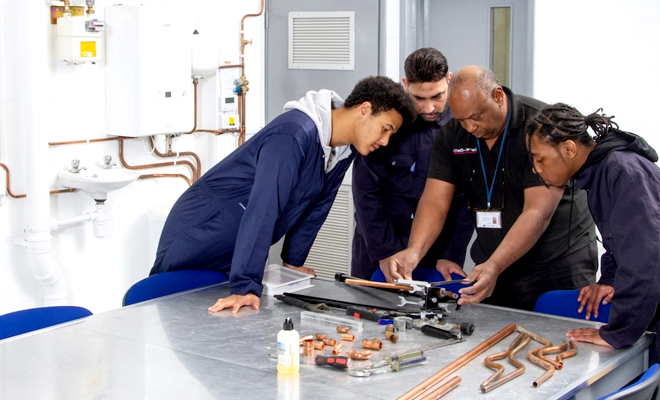
An industry qualification usually takes the form of an NVQ or Diploma in certain courses like Domestic Natural Gas Installation and Maintenance or something along those lines.
From here, heating engineers are required to join the gas safe register which covers residential appliances. To get onto this register, heating engineers are required to take a Gas Assessment Training (ACS) certification.
Heating Engineer Insurance
All tradesmen must have liability insurance to work on a customer's home, to protect themselves and their customers from any liability issues relating to accidental damage and injury.
Accidents very rarely occur, but if they do, liability insurance ensures that the customer can claim against the tradesmen through their liability insurance and not them personally, which can ruin lives and businesses.
You should check with any tradesman that you hire, that they have valid and correct liability insurance that allows them to work inside other homes.
How to Find and Hire a Heating Engineer
Finding a tradesperson to carry out work on your home was once a difficult task that relied heavily on the yellow pages and the recommendations of people you knew. However, in the internet age, it's now much easier to research companies to check out their reviews, prices, services and much more.
Most companies and contractors will have their own online pages too, allowing them to see what they provide, who they are certified by and what industry registers they are on.
Reviews from past customers and examples of previous work are always great indicators of how legitimate of a company they are, and how likely they are to provide quality work on your home. But, word of mouth still counts for something, so if someone comes recommended by a friend or family member, check them out too!
FAQs
They are run through your boiler and heating system, which is a great feature, as you can set them to timers just like your radiators.
This will allow you to warm up the cold bathroom tiles in advance before you have to get out of bed and shuffle to the bathroom.
That said, if you have a few different jobs, or a big project completed, you can certainly try to see how much discount you can get for doing so.
There are never any guarantees, but if you provide a lot of work to a tradesperson, they are usually pretty forthcoming about discounts and deals.
Worcester and Viessmann Boilers are two standouts in the industry, and a great deal of UK homes will have a Worcester boiler.
Ideal and Valliant boilers are also very highly thought of, and you shouldn't have a problem with either.
The length of time differs from company to company, but you usually get a good few years of free service before the warranty expires.
There are a few eligibility criteria to meet, but they are pretty standard. There are other schemes like this one, and a quick Google search will allow you to find one that suits your needs.










